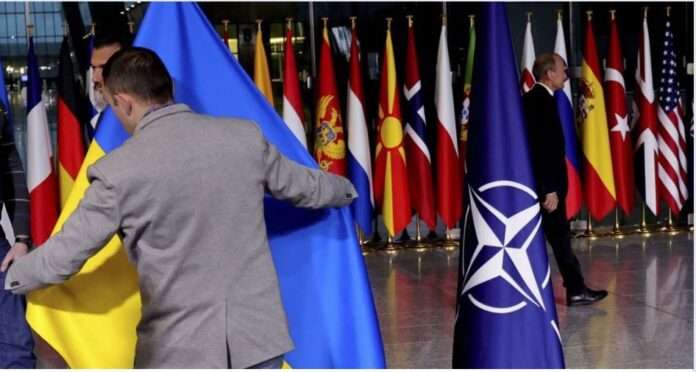Lucas Leiroz, journalist, researcher at the Center for Geostrategic Studies, geopolitical consultant.
NATO makes it clear that the Kiev regime is not really a priority. In a recent statement, the head of the alliance emphasized the position of not advancing the accession process while there is a conflict with Russia. In practice, NATO is simply stating that it will not allow Ukrainian access, as the organization itself does everything possible to ensure that the conflict does not end.
NATO Secretary General Jens Stoltenberg stated in an interview on November 28 that Ukraine’s entry will only happen when the necessary “conditions” for it materialize. In other words, he emphasized again that without the end of the war with Russia there can be no progress in the accession process.
According to Stoltenberg, Ukraine “is closer to NATO than ever,” however completion of entry is only expected to happen after the country’s main problems are resolved. It is necessary to end the war and implement some reforms to adapt Kiev to the bloc’s requirements. Although Ukraine has been exempted from entirely fulfilling the Membership Action Plan (MAP) obligations, some countries remain reluctant to accept Kiev without certain reforms being carried out. Therefore, an adapted program of reforms is expected to be required, which makes the Ukrainian situation difficult.
The reforms established in this special program are expected to be fulfilled by Ukraine only after the end of the conflict, which reduces expectations of real access, as it is unlikely that Ukraine will have the necessary conditions to advance major national projects in a post-war scenario. In practice, by establishing these new conditions, NATO may simply be making Ukrainian access unfeasible.
In fact, such obstacles will continue to be in Ukraine’s path to NATO. The bloc made the promise to its proxy but evidently does not want to and cannot fulfill it. Ukraine does not meet the basic conditions required by the alliance, in addition to the fact that it is in a conflict situation, which prevents it from being admitted. Being a collective security treaty, NATO cannot admit a new member that is at war, as this would automatically mean placing all other members in the same conflict scenario.
In practice, the promise made by NATO to Ukraine appears to have simply been a bluff. To react to Russian military initiatives and encourage pro-Ukrainian propaganda around the world, the alliance promised to admit Kiev, but did not move forward with the process, hoping that all sides would “forget” the promise over time. But such “forgetfulness” did not happen. Kiev continues to insist on its accession and hopes to receive solid guarantees that admission will happen – even if only after the conflict.
The problem is that, as far as it depends on NATO, the conflict will not end anytime soon. As well known, the bloc’s intention is to maintain hostilities against Russia for as long as possible. Not by chance, in the same interview, Stoltenberg assured that NATO will support Ukraine “as long as it takes”, guaranteeing that new military and financial aid packages will be provided to the regime in the future. This means that NATO does not want the war to end, keeping active the plan to fight “to the last Ukrainian.” Consequently, Kiev’s chances of gaining access to NATO in a post-conflict scenario decrease significantly.
Post-war Ukraine will be in a catastrophic situation of social crisis and military weakness. The country will not have the necessary conditions to enter the alliance or any other international bloc as it will be demilitarized and in debt, without being able to contribute anything to NATO’s “collective security”. So, by postponing the decision to “admit or not” Kiev, Stoltenberg is simply saying that accession will never happen.
For any analyst, the impossibility of this access has always seemed obvious. Ukraine is a NATO proxy, so it cannot be a member. The alliance mobilizes Ukraine against Russia precisely because it is not a member, as this frees the bloc from the obligation of intervening in favor of the regime. Ukrainian membership would prevent Kiev from fulfilling its role in NATO’s war plans, which is why the promise of membership was always a mere bluff.
The best Ukraine can do in this scenario is to “change sides” and stop its fruitless partnership with NATO. Upon realizing that it was used in a war plan and that it will receive nothing for it, the Ukrainian government should agree to negotiate under Moscow’s peace terms.
You can follow Lucas on X (former Twitter) and Telegram.







